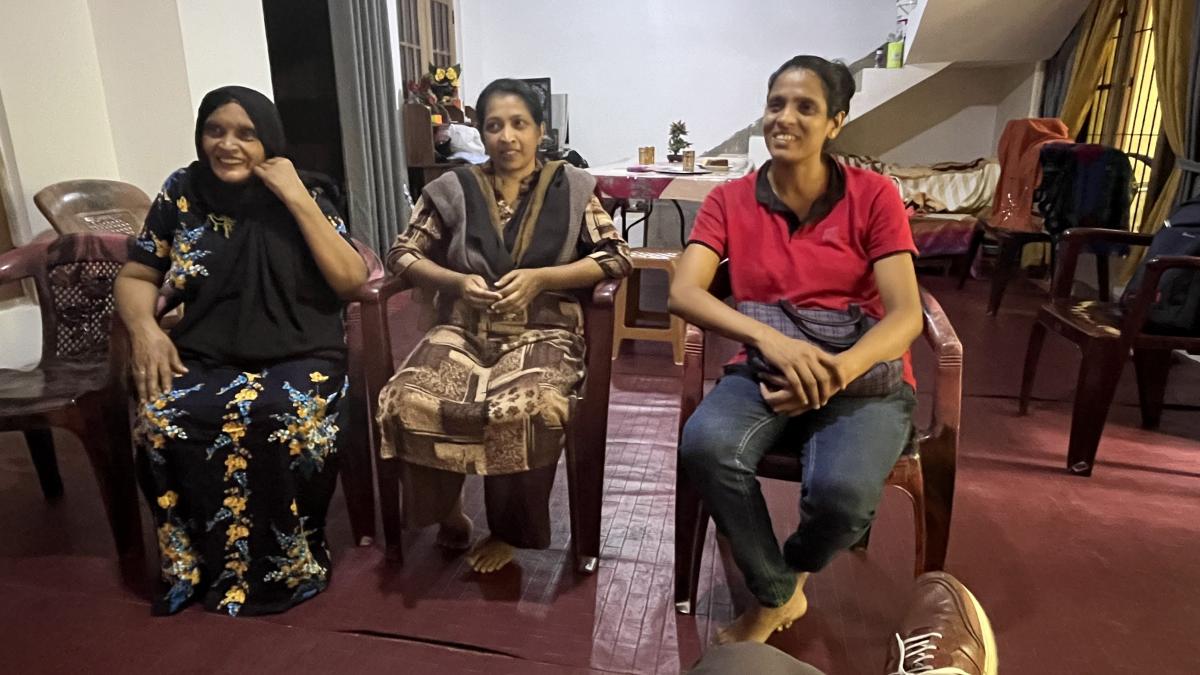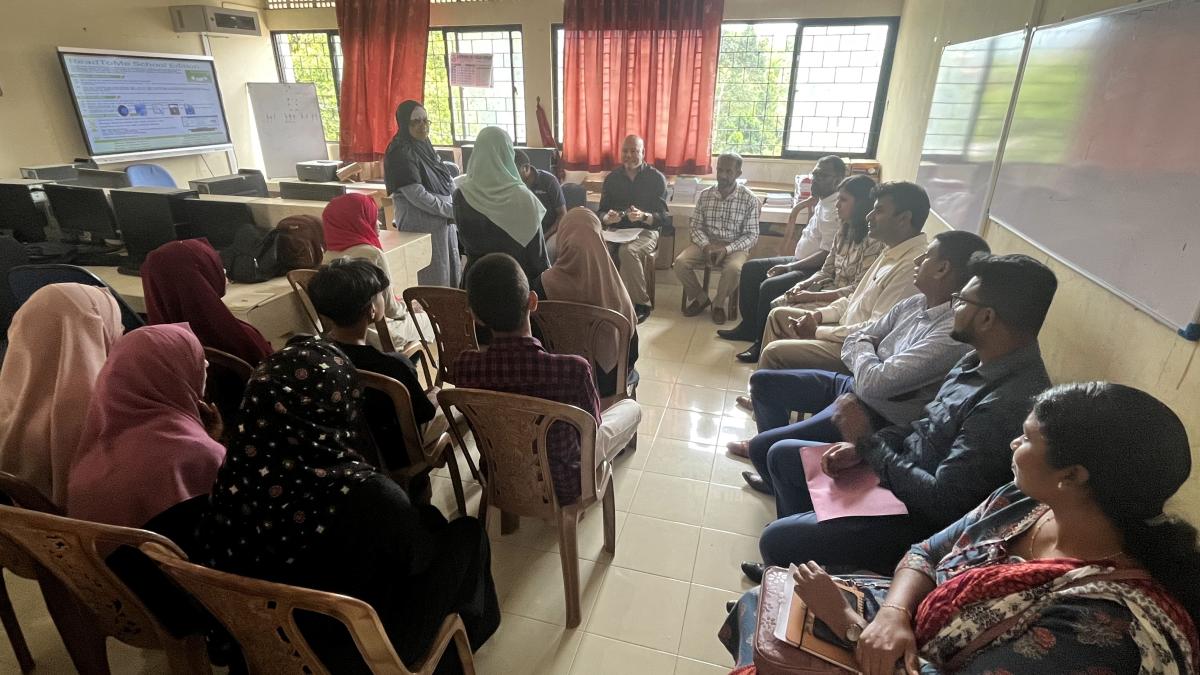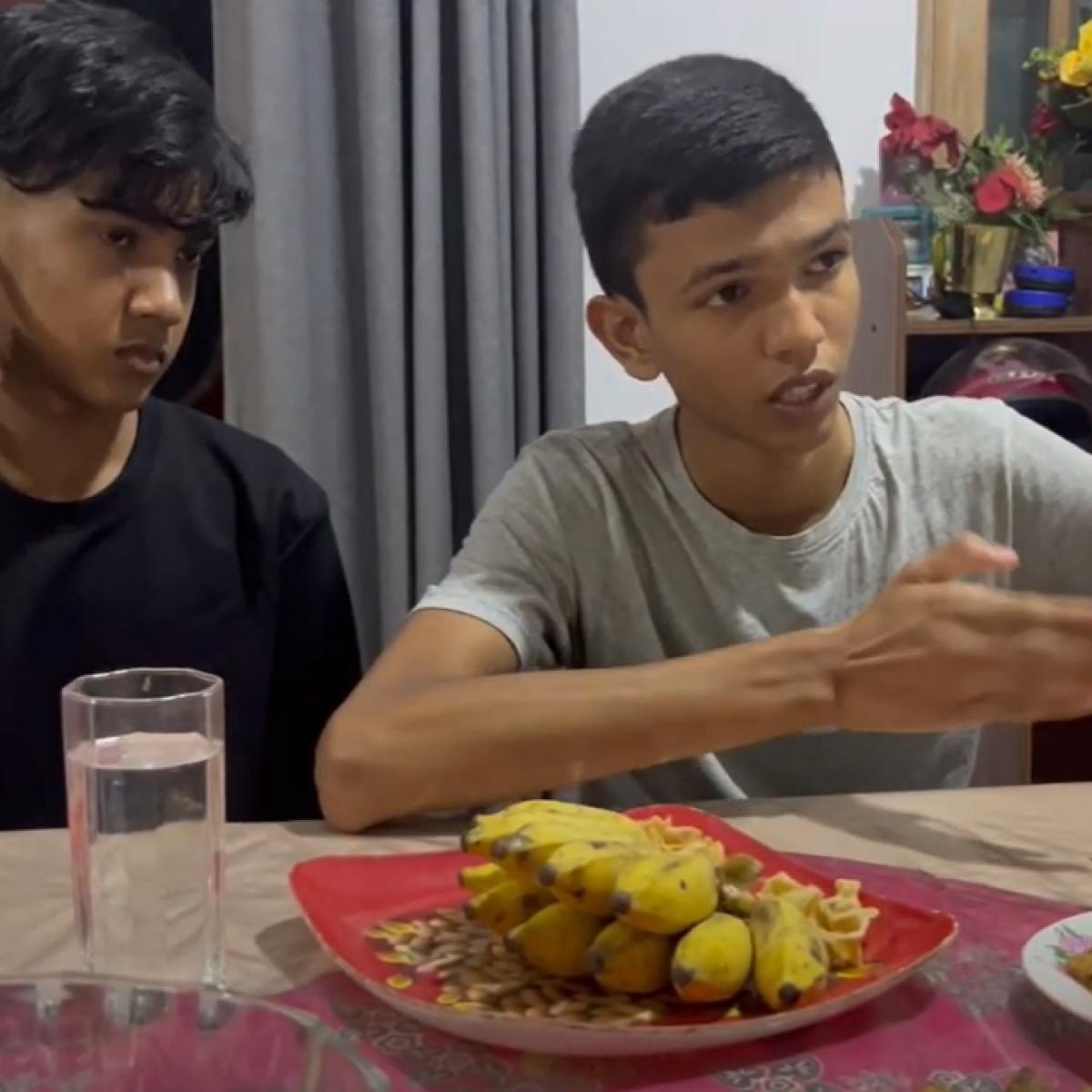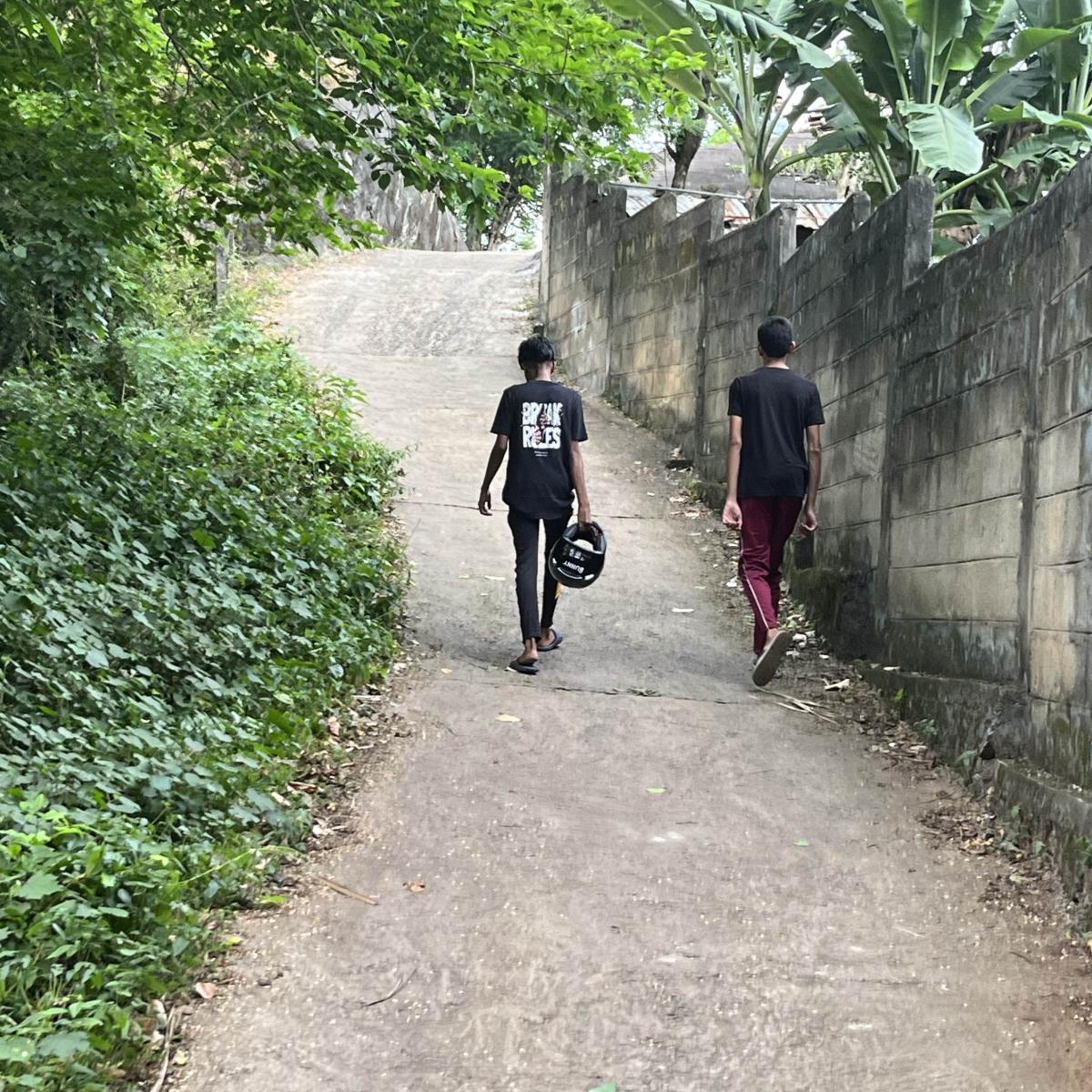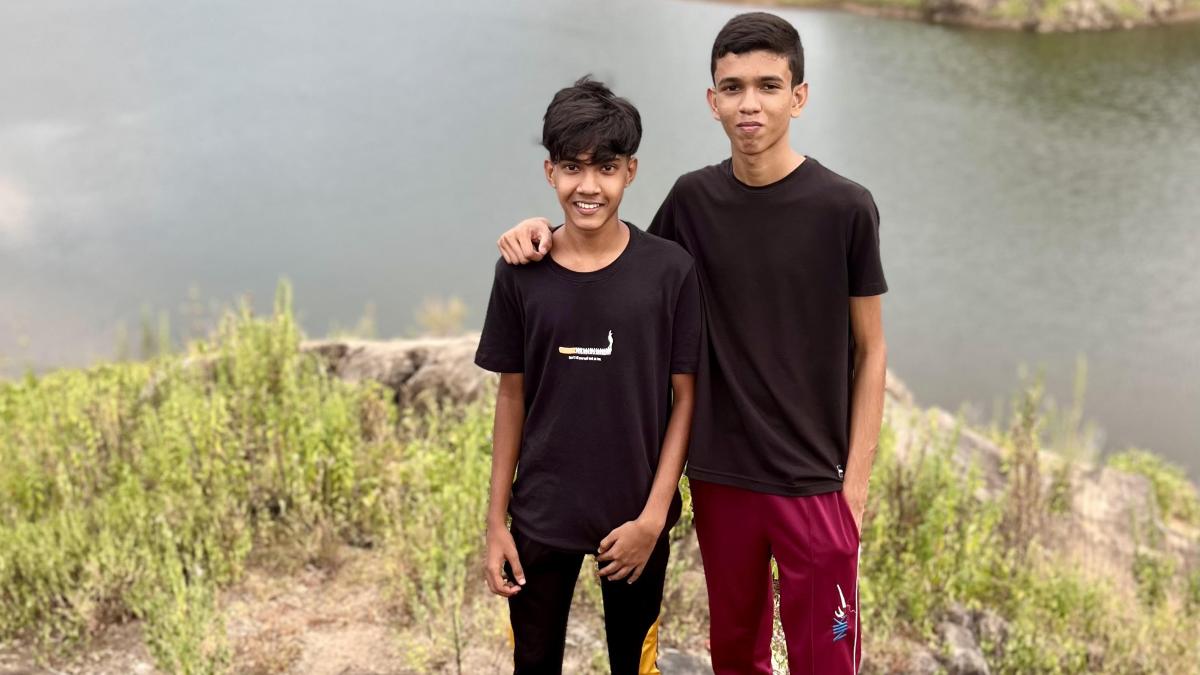On a typical after-school afternoon on the playfield in the village of Ellepola, just east of Kandy in Sri Lanka’s Central Province, you can find 16-year-old Musthaq Ahamed, 17-year-old Charuka Jeevantha, and their friends playing football (soccer).
A year ago, you likely would have found Musthaq, a Muslim, playing football with his friends and Charuka, a Sinhala Buddhist, playing cricket with his pals. Although they would see each other in the village, the boys didn’t know each other’s names.
Like Sri Lanka, which is 75% Sinhalese, Ellepola is majority Sinhalaese, but residents say it has always been a multi-ethnic community living in harmony. That harmony was shattered in 2018 when a Muslim and a Sinhala youth fought at a nearby petrol station. The Sinhala boy died, which unleashed a wave of violence targeting Muslims, who make up about 10% of the island nation’s residents.
Sri Lanka is a post-conflict country, having been torn apart by a civil war that for more than a quarter century pitted separatist Tamils seeking a different homeland in the north against the majority Sinhala rest of the country. Fighting ended in 2009 but tensions of many kinds remained — and new ones emerged.
“The context has changed continuously in Sri Lanka,” said Jeyathevan Kaarththigeyan, chief of party for USAID’s Social Cohesion and Reconciliation Activity (SCORE) and a longtime peacebuilding advocate. “Because of that the country dynamics have changed. Even after the war, there was conflict between Tamils and Sinhalese. After the Easter attack (terrorist bombings of hotels and churches in 2019), it turned into a different level between Muslim and other communities. Then after the (2022 nationwide Aragalaya, or “struggle”) protests, context turned again between the old government and the people. We have to continue peacebuilding on the changing dynamics.”

